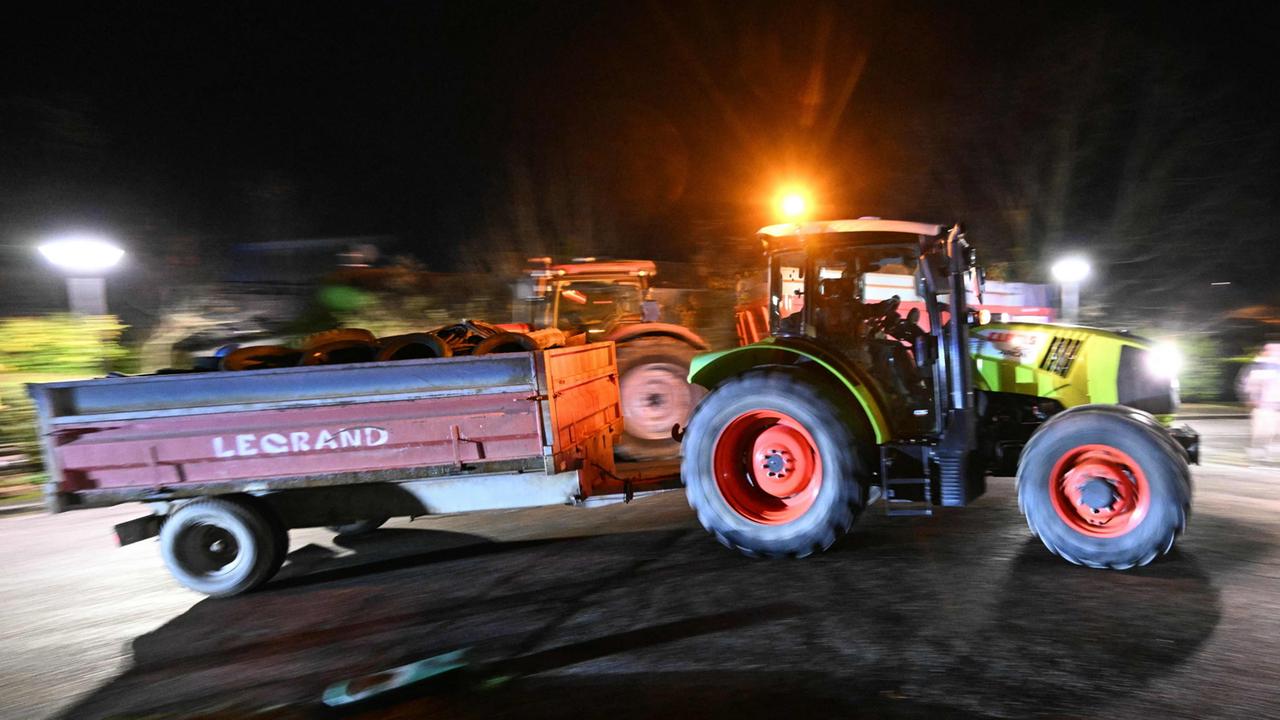Finally get the free trade agreement with South America over the finish line – also as a signal to Trump: That's what many in the EU hope, especially Germany. But the resistance is great – too great?
It is not due to a lack of preparation time that the EU and four South American Mercosur states have still not concluded a free trade agreement: both sides have been negotiating for 25 years, and in 2019 they reached a fundamental political decision. Ursula von der Leyen was actually supposed to get the agreement ready to sign at the Mercosur summit in Uruguay's capital Montevideo today.
But earlier this week the European Commission said its president had no travel plans at the moment. Important EU member states are mobilizing against the agreement: France, Poland, Austria and the Netherlands.
German-French dispute
The head of the commission apparently does not want to ignore their resistance. If Italy, which also has concerns, joins the brakes, there would no longer be a qualified majority among the EU countries for the agreement anyway. Right-wing populist parties are strong in all skeptical member states.
Opponents fear economic disadvantages for Europe's farmers, especially in the trade in beef and poultry. On the other hand, Germany, with its particularly export-dependent economy, is pushing hard for a conclusion – if necessary even against internal EU opposition: According to Federal Foreign Minister Annalena Baerbock, Commission President von der Leyen has the full mandate to conclude the agreement politically, and she should use that.
EU is looking for new partners
The declared goal of Berlin and Brussels is to find new trading partners given the tense geopolitical situation. Things are likely to become more difficult with Europe's most important partner, the USA, after Donald Trump takes office as US President – he is threatening new tariffs.
The EU also wants to make up ground against its system rival China. This has pushed Europe out of first place in Latin America when it comes to trade in goods and direct investment. According to the Brussels think tank Bruegel, this is because the West did not take trade agreements with Latin America seriously enough. Beijing took advantage of an opportunity that others carelessly let slip by.
South America is strategically important for Europe when it comes to raw materials for the expansion of sustainable technologies: The world's largest deposits of lithium, which is needed to produce batteries for electric cars, are located there. A functioning agreement with the Mercosur states would also be proof that the multilateral trading system still works.
“Taken hostage by agricultural interests”
French President Emmanuel Macron in particular invokes Europe's “strategic autonomy” at every possible opportunity in order to become more independent from the USA and China. French winemakers, dairy farmers and car manufacturers would also benefit from a free trade agreement that would eliminate import tariffs of up to 35 percent in the Mercosur countries of Argentina, Brazil, Paraguay and Uruguay.
According to Jürgen Matthes from the German Economic Institute (IW) in Cologne, Europe can no longer afford to stall these potential trading partners: “Our geopolitical and industrial interests are being held hostage by agricultural interests, which are particularly pronounced in Europe.”
Matthes refers to protective mechanisms for European farmers and calls the debate about their supposed threat completely exaggerated. The IW expert points out that Germany was outvoted in the dispute over countervailing duties for electric cars from China. Now the EU must ignore France's resistance.
Customs duties should be eliminated
The EU-Mercosur agreement is intended to create the largest free trade area in the world with over 700 million inhabitants. The trading volume is still comparatively small at around 110 billion euros last year.
The agreement aims to change that by gradually eliminating tariffs on 90 percent of the goods that EU companies deliver to Mercosur. This could save European companies four billion euros annually. Germany is at the forefront of the EU states when it comes to selling cars and car parts to Mercosur, as well as when it comes to exporting machinery and electrical appliances.
Beef and other foods imported from South America must meet European standards. Both sides commit to implementing the Paris climate agreement and combating deforestation. Even if the head of the commission does not fly to Montevideo, the negotiations are continuing. It remains to be seen when the next chapter in the never-ending story of the EU-Mercosur agreement will be written.





